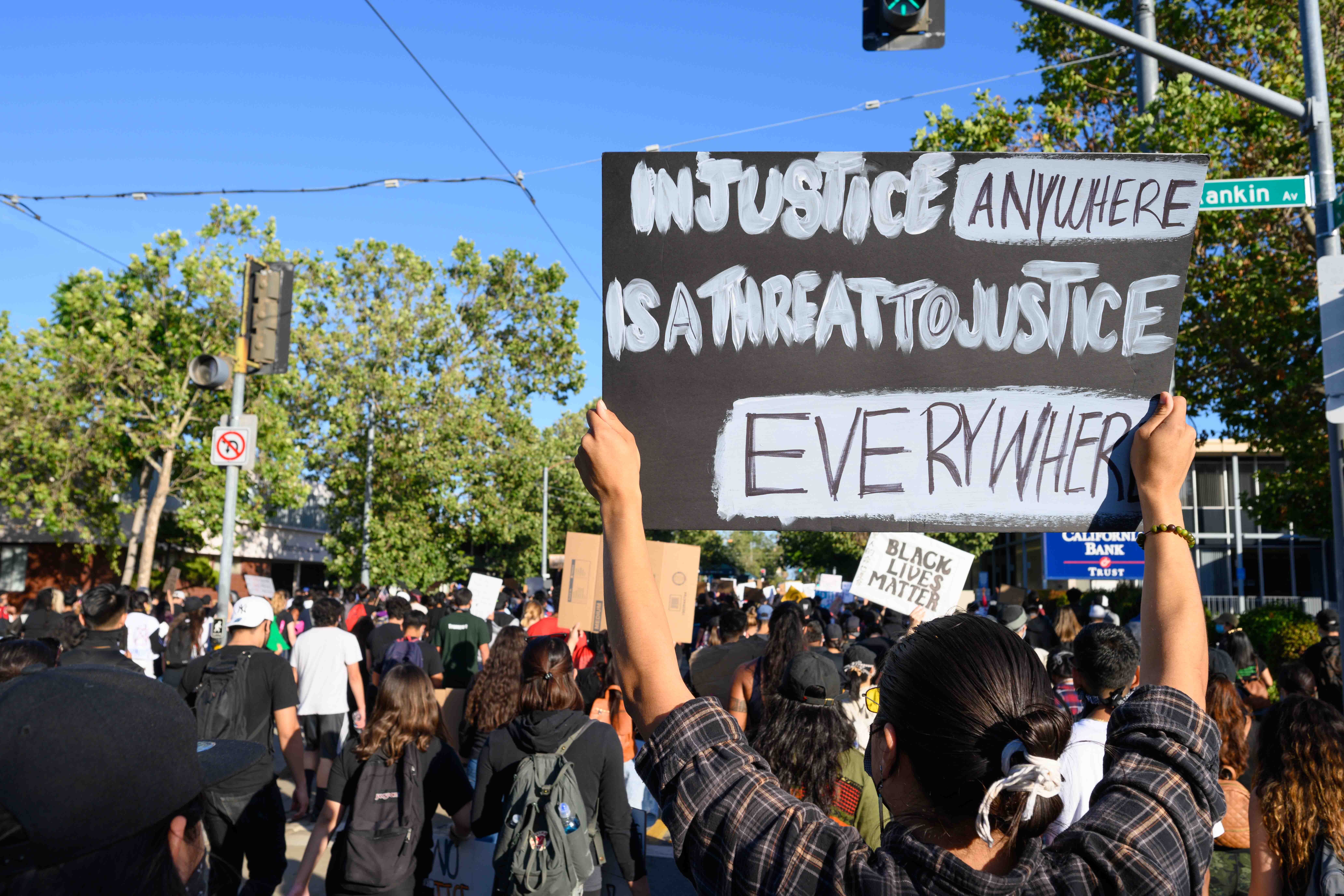I remember my first walkout freshman year of high school in support of the Parkland survivors. The front of our campus was lined with candles and posters for the victims. The quad was packed with faculty members, local representatives and the student body, as we listened to the student organizers deliver powerful speeches on how the surge of mass shootings had affected the school environment. This was the first real protest I had attended, one of the first opportunities I had gained to step out of the Bay Area bubble and view the world through a more holistic lens.
As someone who participated in speech and debate for years, I heavily researched global issues, ranging from foreign policy to gun violence. However, I couldn’t help but feel desensitized to these global atrocities that became mere academic arguments for debate tournaments. After the Sandy Hook shooting, I remember watching in disbelief as my fourth grade teacher broke down in tears in front of the class. Years later, mass shootings had become so normalized to the extent that I was no longer surprised when I read about them on the news.
But Parkland was a breaking point. Soon, the March for Our Lives movement was born, propelling courageous, determined survivors to the forefront of activism for gun safety measures. I was awestruck seeing high school students take the initiative to break a perpetual cycle of gun violence that had plagued America for decades. I felt determined to do the best I could to contribute to the cause, whether it was donating, signing petitions or simply educating myself on the legislation.
Within a few months, the media had moved on. They were no longer covering the March for Our Lives movement, and I started experiencing “activism fatigue.” It became increasingly harder to remain a part of the movement when it wasn’t talked about as much. I had become disillusioned by the common assumption that the issues were solved because the movement wasn’t gaining as much attention anymore.
Two years later, following the murder of George Floyd, society seemed to reach a breaking point once again. It was harder to push for legislation on the ground, especially in the midst of a pandemic, making social media an essential platform to spread information. Infographics and empty black tiles began to flood my screen, but in a fraction of a second, this digital activism began to die down. I knew from my past experience that it was more important than ever to continue to advocate for social justice because even when the media stops covering protests, the issues still persist. It was easy to buy into the diluted perception that we were solving issues in a matter of months when, in fact, it was more like plastering a thin bandaid on a deep, infected wound.
After an insightful Business Insider article written by March for Our Lives organizers, I reflected on the multifaceted nature of activism. According to the article, March for Our Lives leaders had organized a virtual lobby where they advocated for policies centered around police reform to support Black Lives Matter. The writers went into detail about how police violence is gun violence. Although the statement may have initially seemed intuitive, it drastically shifted my perspective on activism.
I used to compartmentalize social justice movements, whether they pertained to gun violence, climate change, the criminal justice system or police brutality. Each movement seemed to focus on reforming a distinct aspect of society, but in reality, many of these movements had common ground. The Black Lives Matter movement had many parallels with the March for Our Lives movement and other social justice movements. Numerous studies have shown that people of color are disproportionately killed at the hands of police. Gun legislation, therefore, has to be a prerequisite for police reform to be effective. Police reform will then allow funding to be diverted to under-resourced communities to improve employment and bridge the wealth gap.
I realized that one movement alone could not tackle prevalent problems such as gun violence and police brutality. Issues like these have seeped into many other facets of society, from the environment and the criminal justice system to educational opportunities. Many of these problems are intertwined, and as someone who is passionate about fixing these problems, I can’t cling to a “trend” for a couple of months and then expect changes to be made.
It’s bewildering to think that my school walkout for gun control over two years ago can still have such a significant impact on today’s movements. I am often tempted to look back on major movements and revolutions of the past and assume that no more progress needs to be made. But now more than ever, I need to continue advocating for more equitable policies and embracing my activism as a coalition of intersecting movements that are vital to ensure long term progress.
Contact Nevin Thombre at nevin.n.thombre ‘at’ gmail.com.
